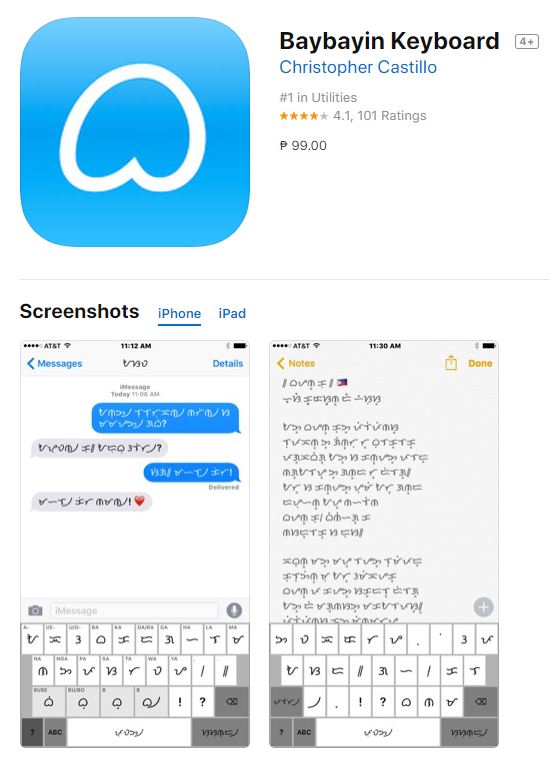By Jason Cruz
Northwest Asian Weekly

Christopher Castillo
Growing up in the Central District of Seattle, Christopher Castillo came upon a play about the Filipino Revolution at the Langston Hughes Cultural Arts Center. The play’s program included “curious characters,” which spurred Castillo’s interest. It led to a phone app that has gained a swell of popularity.
The characters were written in Baybayin, a well-known ancient script of the Philippines, mainly used by those speaking the Tagalog dialect. It is an indigenous indic that pre-dates the Spanish rule over the islands. Fortunately, the ancient script has been preserved throughout the years, enabling the passage of the script to go from one generation to another. Two sets of documents have been preserved. There is extensive documentation made by the Spanish, which were preserved by the Spaniards in their native language. Then there are archival documents showing the original handwriting of the script from as far back as the 1600s. The term baybayin literally means “to spell, write, and, syllabilize,” in Tagalog. There has been an effort to preserve the script as one of the last bastions of Filipino history without Spanish influence.
Years after watching the play, Castillo came across a feature article in Pilipinas Magazine about the script. Wanting to know about this part of Filipino culture, Castillo kept track of the script.
Castillo went on to Mercer Island High School and Bellevue Community College. He then went on to work in the software industry as an IT project manager. Through his vocation, he was able to write computer programs. During the early days of the internet, Castillo came across a website with information on the Baybayin script, in which you could download the font.
Castillo decided that he could write an application to provide a keyboard, in which users could type out Baybayin script.

“I just did it just to do it,” said Castillo of writing the application. He says it took him a weekend to come up with the majority of the app. He released it and it received a lot of coverage on blogs.
“It was interesting to see the amount of downloads,” Castillo said, who charges $1.99 for its use. The coverage gave Castillo’s app publicity and drew many to purchase his app. Although it’s been five years since its debut, he releases updates as new versions of the iOS comes out.
The app allows users to download a keyboard with the Baybayin symbols on it. The Baybayin Keyboard lets the user type characters on your iPhone or iPad. Castillo says that there is no Android version of the keyboard. The description of the app states that it functions as an alternate system keyboard that can be used within apps such as Messages, Facebook, Instagram, and Twitter. According to Castillo, many users want to learn how to spell their names in the script. It also helps preserve the history of the script and passes along the learning to another generation.
The Baybayin Keyboard has two keyboard layouts. One for a beginner and another for those that have mastered the script. The expert keyboard allows for those proficient in Baybayin to type faster and provide more flexibility.

In addition to the app, Castillo, who now lives in San Diego, specializes in ecommerce as he sells products online. He has developed apparel with Baybayin sportswear. He also sells cutting boards made of bamboo, aptly named Kuwaian, which literally means “bamboo.”
Castillo is looking to develop more household products on his storefront at Amazon.com.
Jason can be reached at info@nwasianweekly.com.



Baybayin scripts were used for many Philippine languages (Ilokano, Cebuano, Pangasinan, etc.)— not just Tagalog. Wikipedia says it was “mainly for the Tagalog dialect”, but that is very inaccurate.